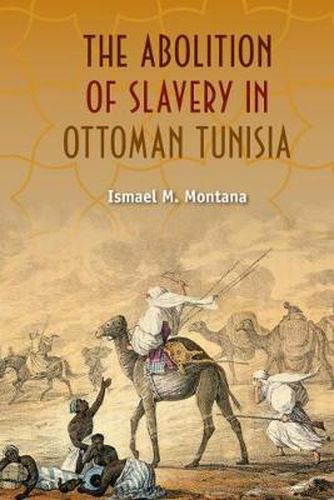Readings Newsletter
Become a Readings Member to make your shopping experience even easier.
Sign in or sign up for free!
You’re not far away from qualifying for FREE standard shipping within Australia
You’ve qualified for FREE standard shipping within Australia
The cart is loading…






Tunisia is known for being the first Muslim country to abolish slavery during the modern period. Although Ahmed Bey, the country’s ruler in the mid-nineteenth century, was morally opposed to slavery, he did not have the broad support of the citizenry to enact reforms. Even religious leaders were against change, pointing to the Islamic Law precedent for slave ownership. Yet the bey realised that increased European intervention throughout North Africa threatened Tunisian independence, and thus embraced abolition as a progressive reform measure to safeguard its integrity and sovereignty.
In this groundbreaking work, Ismael Montana fully explicates the complexity of Tunisian society and culture and reveals how abolition was able to occur in an environment hostile to such change. Moving beyond typical slave trade studies, he departs from the traditional regional paradigms that isolate slavery in North Africa from its global dynamics to examine the trans-Saharan slave trade in a broader historical context. The result is a study that reveals how European capitalism, political pressure, and evolving social dynamics throughout the western Mediterranean region helped shape this seismic cultural event.
$9.00 standard shipping within Australia
FREE standard shipping within Australia for orders over $100.00
Express & International shipping calculated at checkout
Tunisia is known for being the first Muslim country to abolish slavery during the modern period. Although Ahmed Bey, the country’s ruler in the mid-nineteenth century, was morally opposed to slavery, he did not have the broad support of the citizenry to enact reforms. Even religious leaders were against change, pointing to the Islamic Law precedent for slave ownership. Yet the bey realised that increased European intervention throughout North Africa threatened Tunisian independence, and thus embraced abolition as a progressive reform measure to safeguard its integrity and sovereignty.
In this groundbreaking work, Ismael Montana fully explicates the complexity of Tunisian society and culture and reveals how abolition was able to occur in an environment hostile to such change. Moving beyond typical slave trade studies, he departs from the traditional regional paradigms that isolate slavery in North Africa from its global dynamics to examine the trans-Saharan slave trade in a broader historical context. The result is a study that reveals how European capitalism, political pressure, and evolving social dynamics throughout the western Mediterranean region helped shape this seismic cultural event.